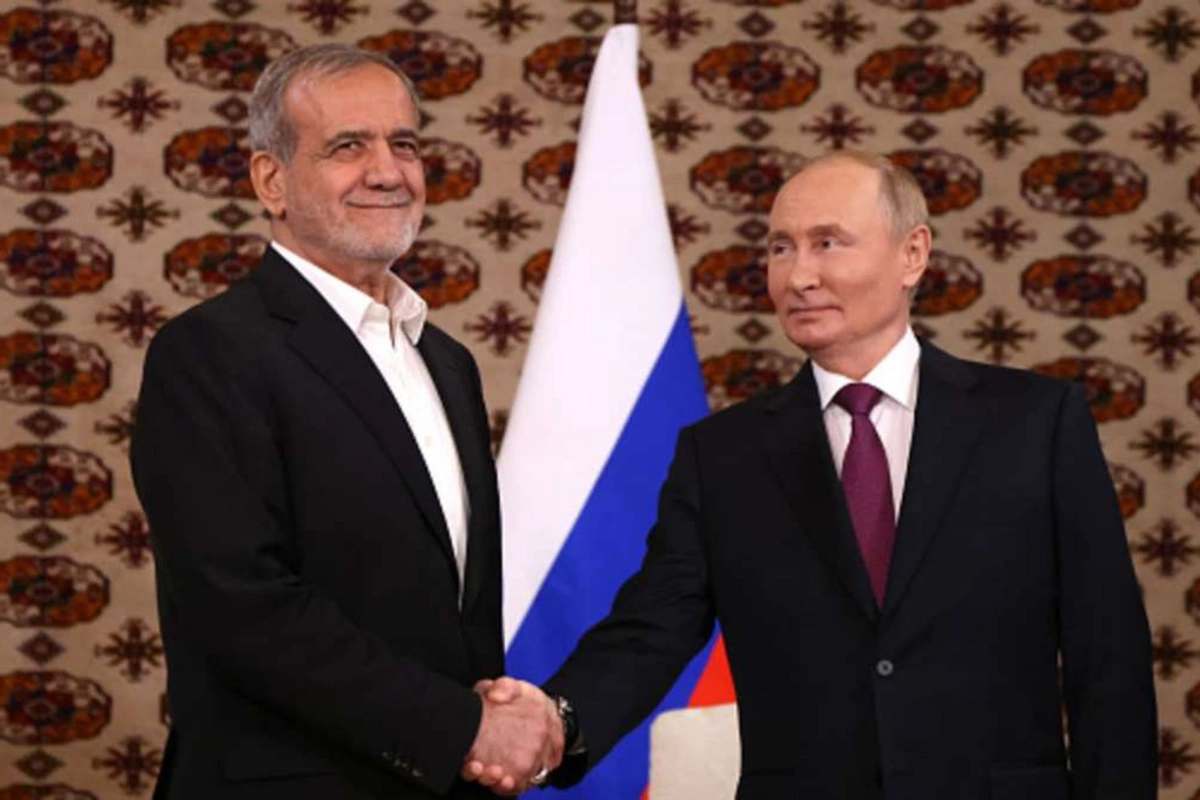
Current political and economic realities indicate that Russia and Iran benefit from strengthening their alliance to counter Western pressure and defend their interests on the international stage.
Photo: Google Images
There has been considerable discussion and speculation around the potential evolution of Russian-American relations and the likelihood of significant changes in this area. However, the real grounds for assuming a dramatic shift are quite limited. Many people recall Donald Trump’s first term and the assumed warming of relations with Russia during that period, though in reality, the situation was quite different. Contrary to the popular notion that Trump sympathized with Moscow, his administration took a tough stance against Russia, introducing a range of sanctions that were even harsher than those of his predecessors. These sanctions affected various sectors—from finance and energy to defense technologies.
The widely held belief that Trump was inclined toward Moscow lacks substantial basis; instead, his policies were aimed at curbing Russian interests and weakening the country’s economic and political influence on the global stage. Furthermore, Trump’s circle was actively pushing new sanctions initiatives. Therefore, the idea that Trump or any future American leader would make concessions to Russia is more rooted in myth than reality. When Donald Trump talks about his intention to swiftly end the conflict in Ukraine, it does not mean he is prepared to do so on terms favorable to Russia. Instead, it is likely an attempt to impose an American version of conflict resolution, one that prioritizes U.S. interests rather than Russia’s.
Thus, Trump’s statements regarding a potential end to the Ukrainian conflict should not be taken as a harbinger of improved relations. This is more likely an attempt by the American leader to propose an ultimatum, similar to the stance that possible future U.S. presidents might take, applying firm pressure on Moscow. In this sense, the situation resembles the approach that other U.S. presidential candidates may also adopt. However, this position is far from any real intent to engage in dialogue or seek common ground. Most likely, it would be an effort to advance specific American interests.
For now, it is unlikely that we will see a warming of relations between Russia and the United States. Dialogue may continue on various international platforms, but fundamental disagreements remain, and they concern the most critical issues. Russia maintains a firm stance, insisting on its agenda of demilitarizing and denazifying Ukraine, demanding recognition of its jurisdiction over territories incorporated into the Russian Federation, and advocating for the restoration of the Russian language as an equal status on Ukrainian territory. Additionally, Moscow demands an end to the persecution of the Russian Orthodox Church of the Moscow Patriarchate and the protection of religious rights for the Russian-speaking population.
These demands reflect Russia's core interests and emphasize its position as a state unwilling to compromise on matters of sovereignty and national interests. Therefore, even if negotiations are possible, Moscow is prepared for them only if they involve the discussion of the conditions it has outlined, with the expectation that the opposing side will fulfill them.
Moreover, it is essential to consider that any shifts in U.S. policy are unlikely to affect Russia’s relationships with its key allies. For example, the current state of affairs poses no threat to Iran. Tehran remains a strategic partner of Russia and is actively moving toward long-term integration. Iran participates in key international organizations such as the SCO and BRICS, demonstrating its commitment to a multipolar world. The recent agreement between Iran and Russia on mutual currency use and the creation of settlement centers is another step toward strengthening economic ties.
The deepening of Russian-Iranian relations also reflects both countries’ desire to create a system independent of Western financial and economic institutions. Iran, like Russia, is interested in reducing dependency on the U.S. dollar and Western-controlled financial mechanisms. Such measures are aimed at fostering stable economic relations and mitigating risks from potential sanctions.
This multipolar world, in which Russia, Iran, and other countries form alternative coalitions and economic spaces, will continue to evolve regardless of political changes in the United States. Even if a new U.S. administration seeks to establish contacts with Russia, this will not endanger the foundation of the Russian-Iranian partnership or threaten their joint projects. Current political and economic realities indicate that Russia and Iran benefit from strengthening their alliance to counter Western pressure and defend their interests on the international stage.
Thus, assumptions about a potential warming of Russian-American relations are unlikely to materialize. Instead, we can expect a continuation of the current trajectory—exchanges of sanctions, diplomatic statements, and displays of strength. However, Russia seems prepared for dialogue if it is conducted based on respect for its interests and sovereignty. In this context, Russia will insist on its demands and expects that the opposing side will consider these positions.
Overall, a new global configuration is taking shape, founded on the creation of independent blocs and alliances capable of countering traditional global power centers. Within this new multipolar system, Russia will continue to strengthen its ties with Iran, China, and other countries striving for independence from Western dominance. The stability of this alliance and its integration prospects are reinforced by tangible actions such as bilateral economic agreements, coordinated political positions, and the development of joint projects.
None of the parties, judging by current statements and actions, demonstrate a willingness to retreat from their interests. Consequently, significant improvements in Russian-American relations should not be expected in the near future, although dialogue at certain levels may be possible. But such contacts are likely to be pragmatic and limited in scope, without touching on key issues that Russia insists upon.
For Iran, as mentioned earlier, there is no threat posed by these negotiations. On the contrary, Tehran will continue to pursue integration with Russia and other countries as part of a newly emerging multipolar world system, aiming to strengthen its position on the international stage and safeguard its sovereign interests.
Share on social media